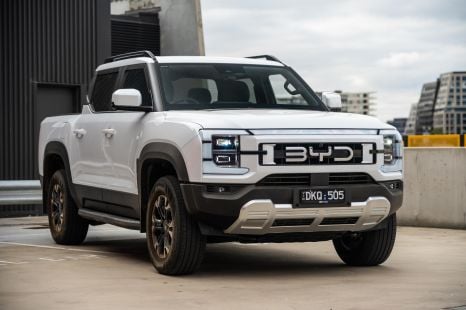

Max Davies
2025 BYD Shark 6 review
23 Days Ago
The Isuzu D-Max is a strong seller with a strong following. How does it stack up in the hands of an off-roader?
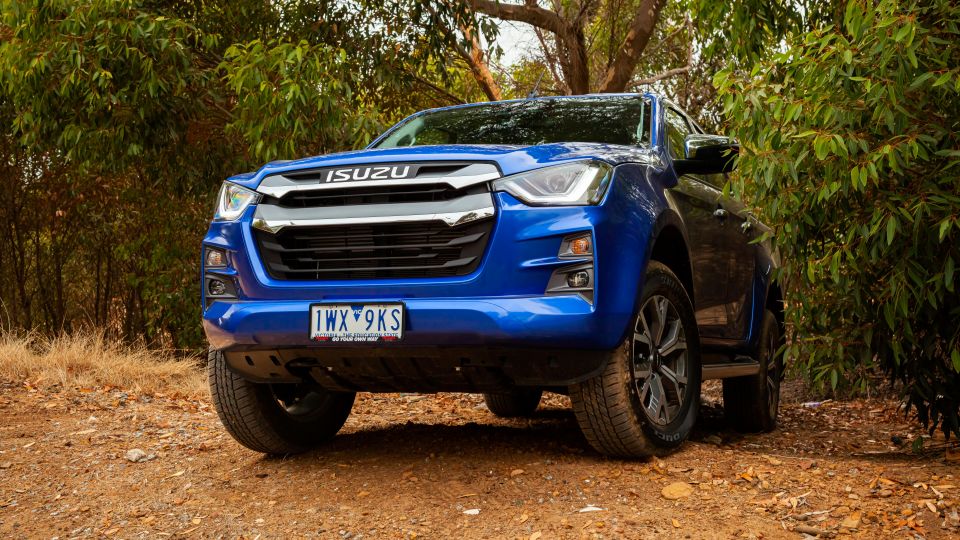


Quickly see how this car stacks up against its competition. Select any benchmark to see more details.
Where expert car reviews meet expert car buying – CarExpert gives you trusted advice, personalised service and real savings on your next new car.
The current Isuzu D-Max was launched with the hype and fanfare of a revolutionary all-new vehicle.
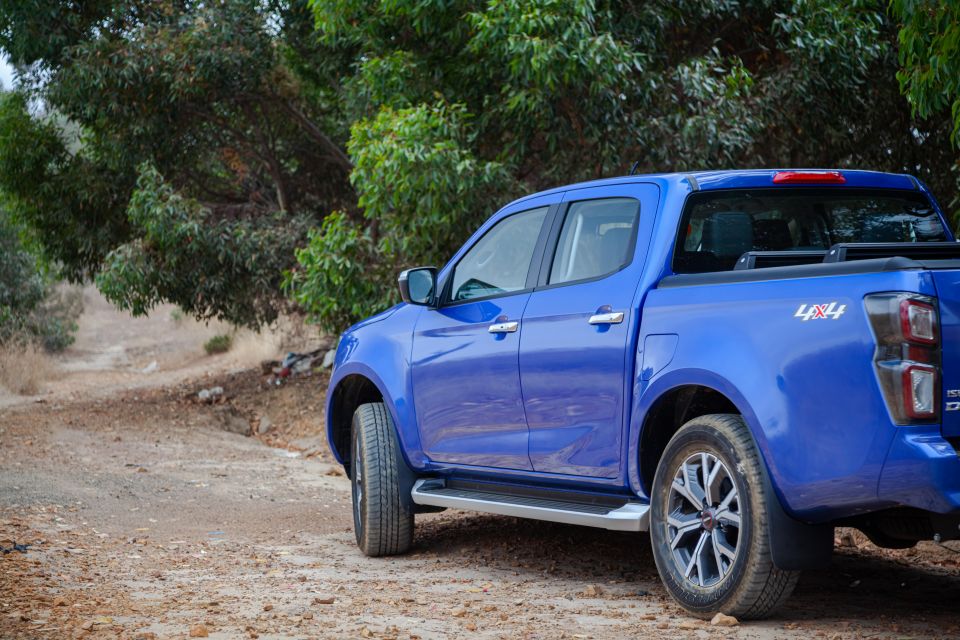
The introduction by the Australian marketing and PR team was nothing short of excellent, and all the flashy new and important stuff was proudly presented in a modern and professional way that just made sense.
In many ways it was an all-new vehicle: new lines, a new interior, a new drivetrain… it was upgraded in every aspect, and the icing on the cake were just about every electronic safety feature that has been conceived to date.
Aside from the hype though, the new D-Max rides on a reputation that has an odd heritage and a cult following that somehow all makes sense.
Isuzu is a truck manufacturing company that makes reliable commercial vehicles. The move to break into the ute world was interesting, but it made sense when a ute at the time was a basic vehicle with a job to do.
So working off the reputation of its trucks, the Isuzu D-Max came to market with a truck-type motor and fairly basic (Holden-derived) styling, and found a market with grey nomads.
In fact, the Isuzu D-Max proved a hit with retirees hooking up the caravan and rattling their way around the country. The noisy motor and basic styling made for a great tow vehicle and the D-Max gained a following as a reliable tow vehicle.
In basic terms, the Isuzu D-Max is another of the many vehicles in the class of dual cab 4×4 utilities.
Dual-cab utes are at the top of the automotive sales charts in Australia. They’re in high demand, and suit our lifestyle by offering unequalled adaptability and application.
So where does the Isuzu D-Max fit; what does it really have to offer and does it’s off road credibility stand up to the hype and reputation? Let’s get behind the wheel of a bright blue D-Max to see how it drives, and what it can do off-road.
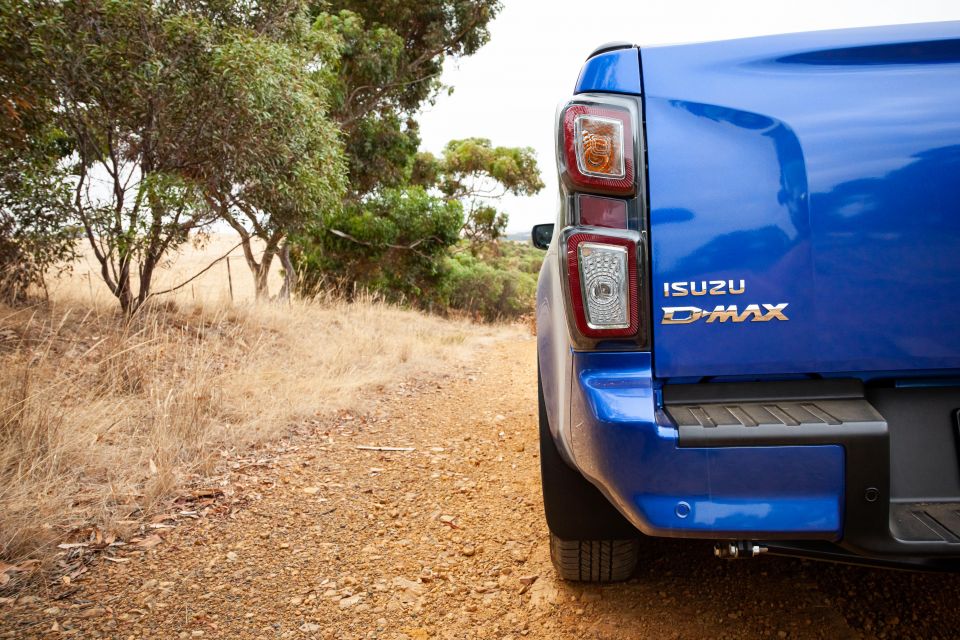
On first appearance the D-Max looks the part, with bold, muscular styling. The interior is also a big winner for me.
I was impressed with the Mazda BT-50 (the same platform as the D-Max, with the same interior). Its layout, styling, appointments, and colours are sharp.
Letdowns though were the noisy cabin, engine rattle (should we have expected anything less from Isuzu), and uninspiring ride.
The D-Max is a reasonable player with good manners at speed on rougher roads and decent performance at slower speeds over more extreme obstacles. The four-wheel drive system is the norm, it’s easy to operate and engage, and basic dash lights indicate what mode you’re in.
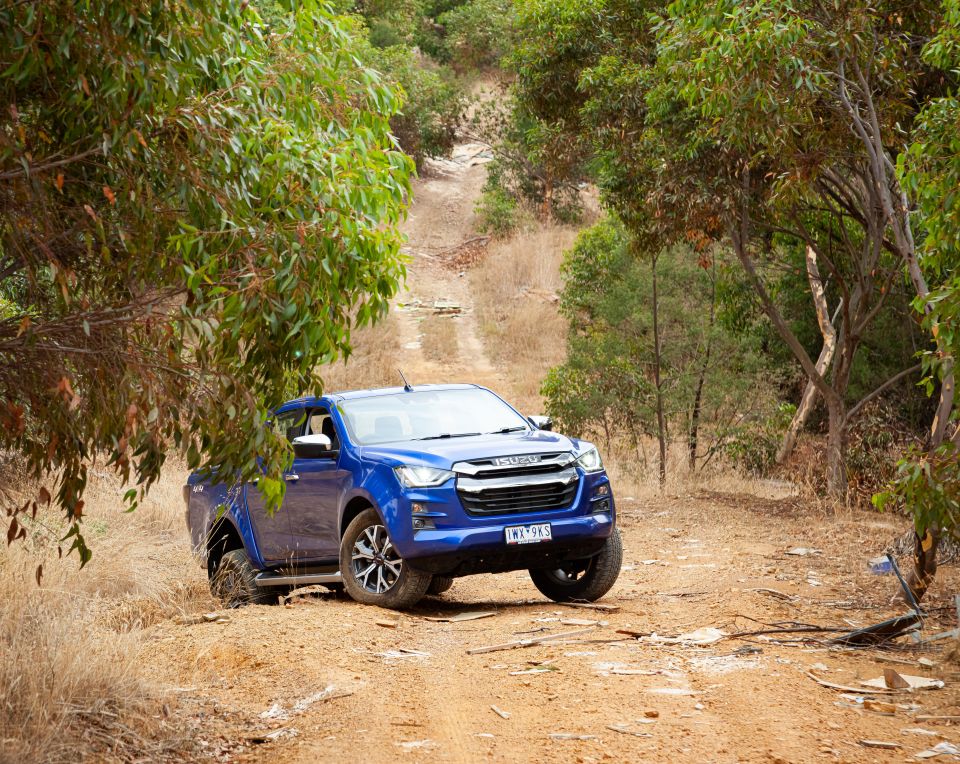
Extensive work was done in the lead-up to the D-Max’s launch to improve the factory suspension and this is evident especially in the rear. Changes to the leaf design were developed in Australia and the D-Max does offer improved load carrying ability, comfort and articulation as a result, which is of course more evident when off-road.
Like most in its class, the D-Max sports a proper dual-speed transfer case. While the independent front suspension is a trade-off in performance and comfort, the saving grace again in this model is the rear factory differential lock.
Teamed with a proper low-range transfer case, a diff lock drastically improves the off-road performance of any vehicle. For the best possible result, adding a front locking differential (like a selectable Air Locker) will provide maximised traction and capability beyond the scope of any open diff four-wheel drive.
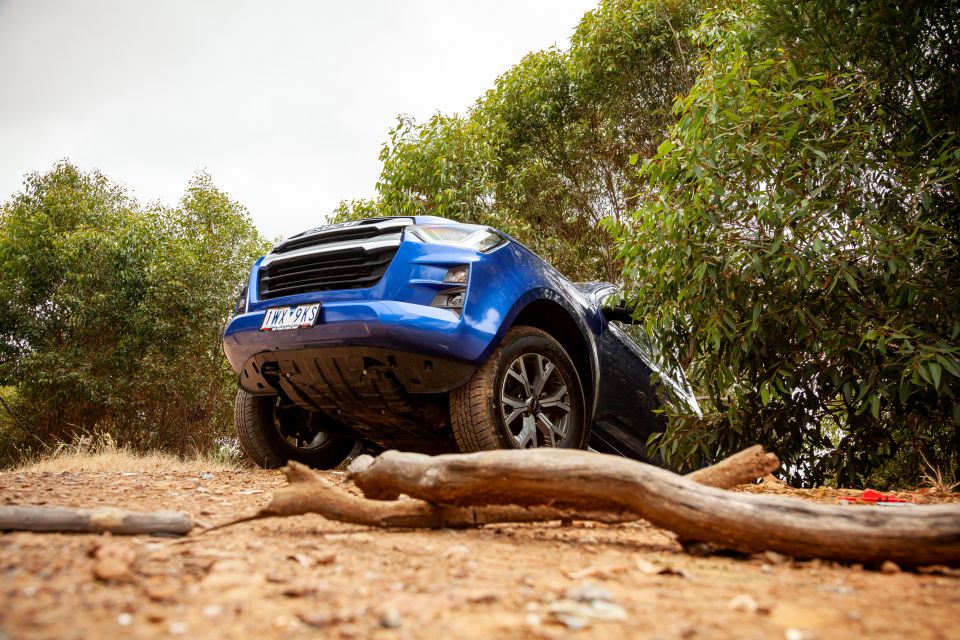
Stronger CVs in this model also add to its off-road resilience. Among other features like hill descent, there is some kind of traction control. It does work okay, but it’s nowhere near what we have come to expect from the likes of the Toyota Prado for example.
The original 4JJ (labelled the 4JJ1) holds legend status amongst D-Max owners.

Based around the design, reliability and performance of the 4JJ1, the 4JJ3 brings newer technology that improves power, performance and efficiency, although its efficiency hasn’t yet been proven. The quoted power and torque figures read well on paper, but it’s not a firecracker in the real world.
The engine is well matched to a six-speed auto, which provides solid drivability.
There’s no shortage of aftermarket accessories for the Isuzu D-Max, with a broad range complimenting and improving almost all facets of its performance.
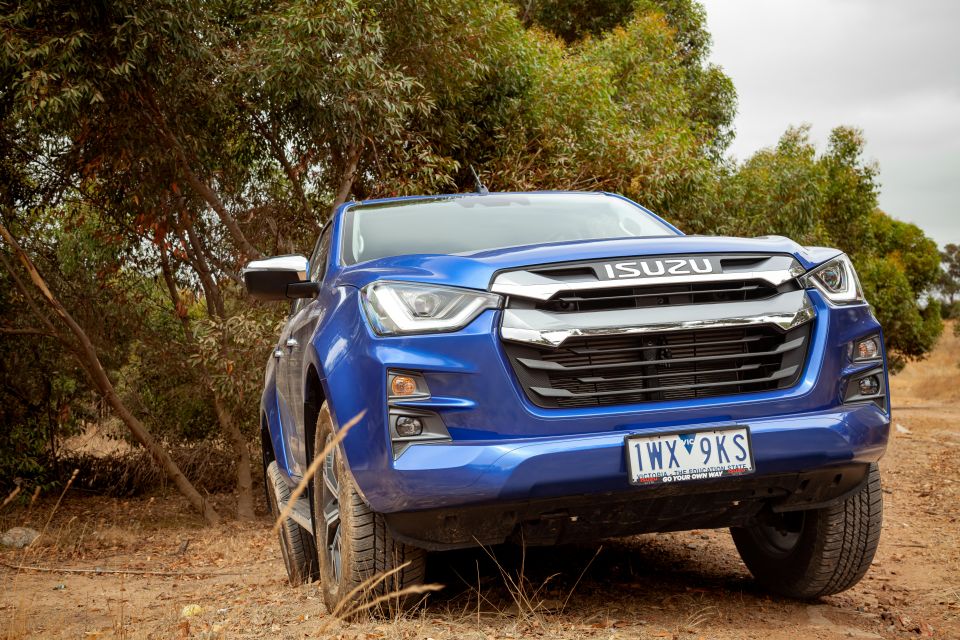
Keeping in mind most vehicles are a trade-off between production costs and performance, it’s definitely worth accessorising your D-Max if you’re going to use it in any capacity other than supermarket and school runs.
The golden three are a great place to start – suspension, a bull bar, and tyres.
Aftermarket suspension like ARB’s Old Man Emu Sport or BP51 will provide enhanced performance, clearance, and comfort. If you intend to leave the city, a bullbar is a must-have on Australian rural roads.
A quality steel bar offers the best protection but ensuring your bar is ADR compliant and correctly crash tested in Australia is critical. This is another area where ARB outshines every other supplier. Tyres are your only contact with terra firma and as such your life depends on them every time your vehicle moves.

Light truck construction four-wheel drive tyres, like Cooper or Mickey Thompson, will offer improved traction, handling and safety, and will fare better in tough off-road conditions with modern compounds that resist chipping and improve overall tyre life and performance.
Think about what sort of driving you will be doing, what you expect from the vehicle, and where you will be taking it. Speak to an expert if necessary to get the right advice on what accessories you will actually need.
The current Isuzu D-Max comes to market with the hype and reputation of a modern caravan hauling, round Australia touring, and safety-packed dual cab 4×4. It’s not perfect, but remains a safe option based on its reputation, reliability, and sales figures.
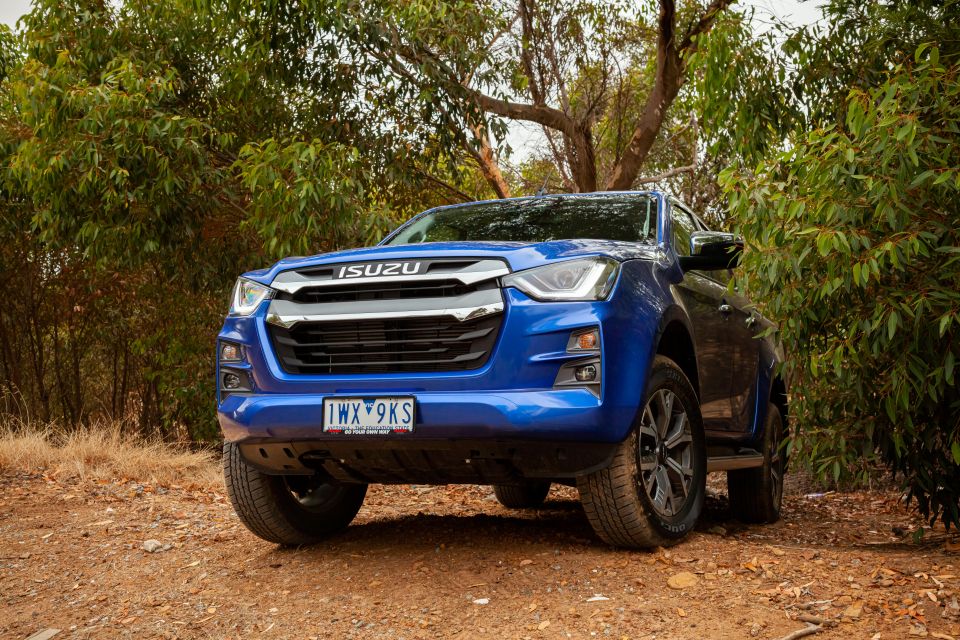
I found the D-Max to be frustrating due to the invasive electronic safety features. I’m a big promoter of active driving, being aware of your surroundings, understanding traffic flow, and ultimately being in control of your own vehicle but the D-Max wrestles with you.
I’ll go as far as saying the safety features in the D-Max (and BT-50) can be distracting, and especially when your focus needs to be on the road.
Depending on the situation, you can end up fighting the car to do what you know is safe.

You will see this theme within my articles as more and more manufacturers follow this route; if you’re happy to sleep at the wheel, these over active safety features will be a great fit. If like me you’re an enthusiast who prides themselves on active driving, the D-Max will drive you crazy (on that note, after speaking with current D-Max owners, many feel the same).
In the D-Max’s favour, there are ways to dampen the safety features.
Overall, I was satisfied but not blown away driving the D-Max.
It’s reliable, it does tow well, and it does hold up to the tough reputation of Isuzu trucks and earlier models, but my frustrations with the driver assist features did detract.

Click an image to view the full gallery.
MORE: Everything Isuzu D-Max
Where expert car reviews meet expert car buying – CarExpert gives you trusted advice, personalised service and real savings on your next new car.


Max Davies
23 Days Ago
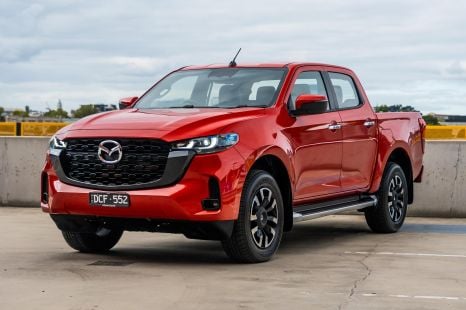

Josh Nevett
15 Days Ago
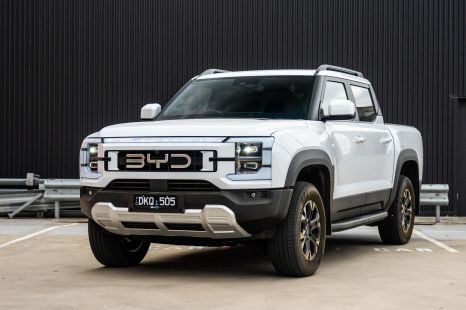

William Stopford
13 Days Ago
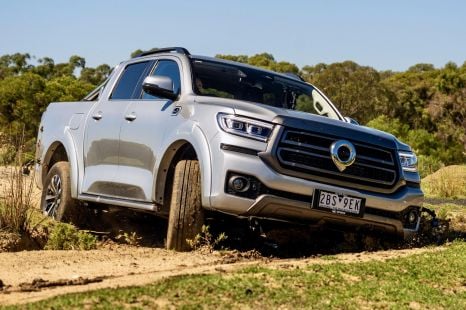

Max Davies
9 Days Ago


James Wong
7 Days Ago
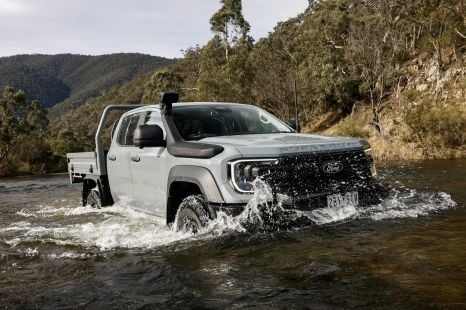

Max Davies
7 Days Ago